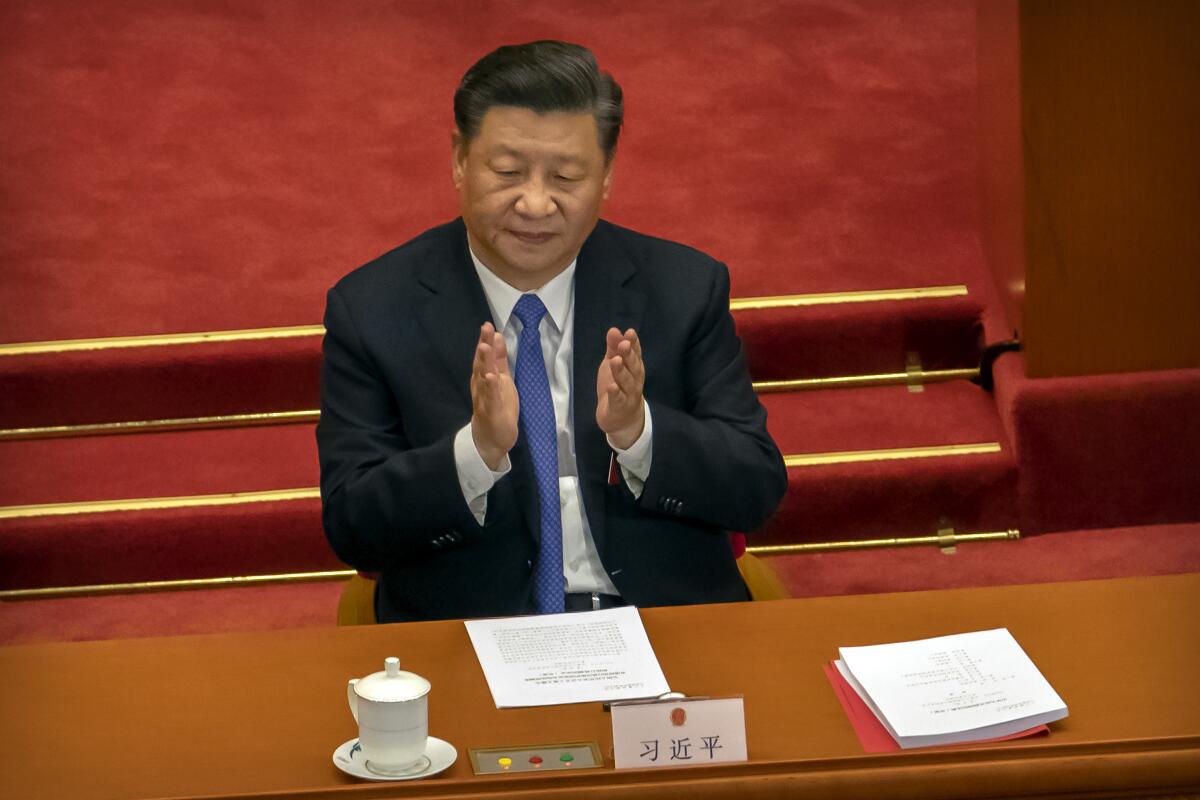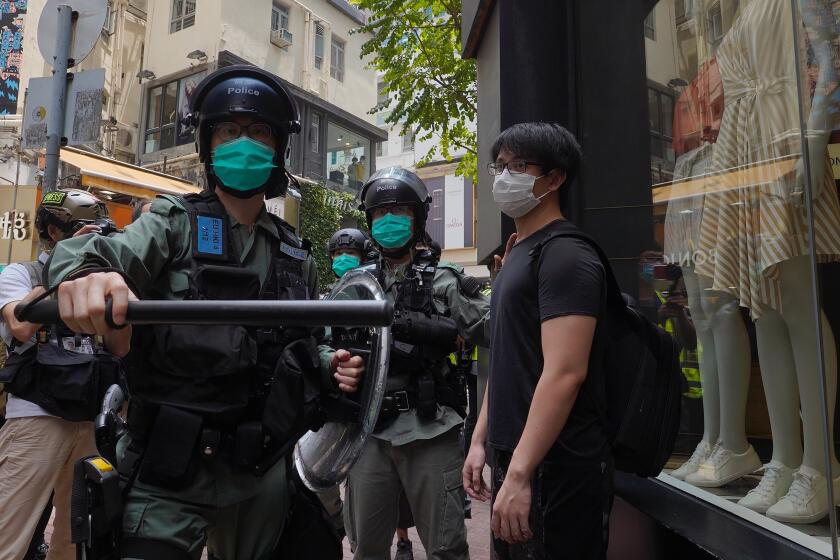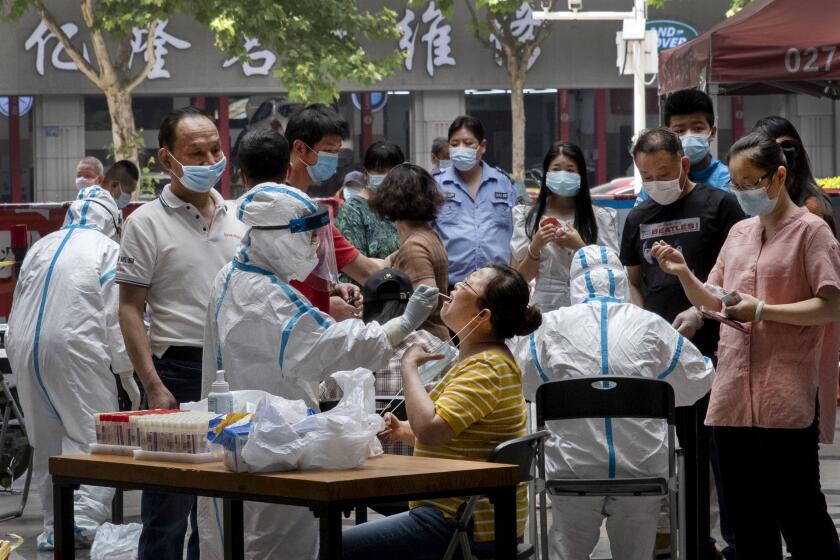China approves controversial national security law for Hong Kong

- Share via
BEIJING — China’s ceremonial legislature overwhelmingly endorsed a national security law for Hong Kong on Thursday that has strained relations with the United States and Britain and triggered protests in the semi-autonomous territory.
The National People’s Congress backed the bill by a vote of 2,878 to 1, with six abstentions, as it wrapped up an annual session that was held under intensive anti-coronavirus controls.
The move will ultimately change the territory’s mini-constitution, or Basic Law, adding a national security law to be formulated later by Chinese leaders. The standing committee of the National People’s Congress that handles most legislation will work out the details.
Activists in Hong Kong say the law will undermine civil liberties and might be used to suppress political activity.
Premier Li Keqiang, China’s No. 2 leader, defended the law as consistent with Beijing’s promises.
“The decision adopted by the NPC session is designed for steady implementation of ‘one country, two systems’ and Hong Kong’s long-term prosperity and stability,” Li said at a news conference, referring to the political arrangement under which Hong Kong was returned to Chinese sovereignty from British rule in 1997.
Thousands of protesters shout pro-democracy slogans in Hong Kong as lawmakers debate a bill that would criminalize abuse of the Chinese anthem.
But the new law and the way it is being enacted prompted U.S. Secretary of State Mike Pompeo to announce Wednesday that Washington will no longer treat Hong Kong as autonomous from Beijing. That could have economic and trade implications as well as political ones.
In Hong Kong itself Thursday, three pro-democracy lawmakers were ejected from the territory’s legislative chamber during a debate over a bill that would criminalize insult or abuse of the Chinese national anthem.
At the United Nations, China blocked a U.N. Security Council meeting to discuss the national security legislation Wednesday. Ambassador Zhang Jun said on Twitter that Hong Kong matters are “purely China’s internal affairs.”
Also Thursday, the National People’s Congress approved a government budget that will increase spending to generate jobs in an effort to reverse an economic slump after Chinese industries were shut down to fight the COVID-19 pandemic.
One month after the city of Wuhan, China, celebrated its reopening, new COVID-19 infections emerge.
The pandemic has added to strains for the ruling Communist Party that include anti-government protests in Hong Kong and a tariff war with Washington.
China has reported 83,000 virus cases with 4,634 deaths. It was the first country to shut down factories, shops and travel to fight the pandemic and the first to reopen in March, but is still struggling to revive economic activity.
Private sector analysts say as much as 30% of the urban workforce, or as many as 130 million people, have lost their jobs at least temporarily. They say as many as 25 million jobs might be lost for good this year.
Beijing will give local governments two trillion yuan ($280 billion) to spend on meeting goals, including creating nine million new jobs, according to the budget. That is in line with expectations of higher spending but a fraction of the $1-trillion-plus stimulus packages launched or discussed by the U.S., Japan and Europe.
Li, the premier, said Beijing was in a “strong position to introduce new measures” if necessary but wanted to avoid flooding the economy with too much money. He said 70% of planned spending is aimed at putting wages in workers’ pockets in order to support consumer spending, the biggest driver of the economy.
“We will do our utmost to keep China’s economic growth stable,” Li said. “At the same time, we must make sure that all measures taken are well calibrated.”
He called for international cooperation in fighting the coronavirus pandemic but didn’t answer a reporter’s question about how an investigation into the origins of the coronavirus pandemic demanded by Washington and some other governments should be conducted.
Beijing has resisted pressure for an inquiry following criticism that it mishandled the early response to the disease. China has blocked imports of beef from four Australian suppliers in apparent retaliation for Australia’s calls for an investigation.
Li said that relations with Washington had run into “new challenges and difficulties” and called for mutual respect and cooperation to promote “extensive common interests” in trade, science and other fields.
“That will be conducive to both countries and the world,” Li said.
More to Read
Sign up for Essential California
The most important California stories and recommendations in your inbox every morning.
You may occasionally receive promotional content from the Los Angeles Times.












